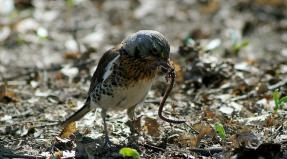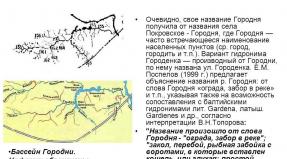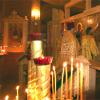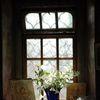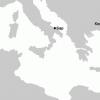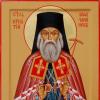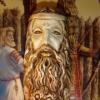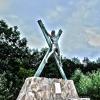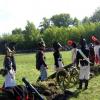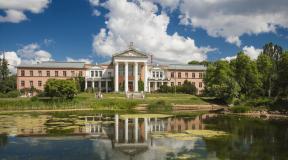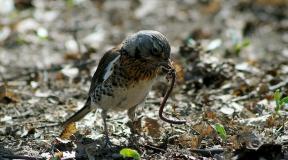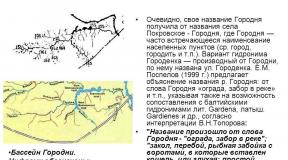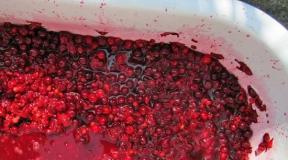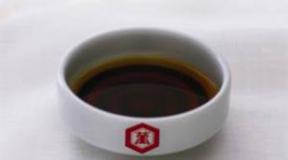Davydov's house. Davydov Denis Vasilievich. Built by Catherine II
I visited this estate during a June walk around Moscow with Maxim Ershov. June meeting of Turbinovites in Moscow.
The current estate was built in the 1770s. At the same time, some sources claim that its first owner was Alexander Ilyich Bibikov (1729-1774), an active participant in the suppression of Emelyan Pugachev’s rebellion, and only then Nikolai Petrovich Arkharov (1742-1814), someone claims that Arkharov was the first owner . This is not important for our history.
When we use this or that word in conversation, but don’t think for a second about its etymology. Words are sometimes like living beings. One appeared and died in infancy, the other grew stronger, took its place in the friendly row of words, and the language can no longer be imagined without it.
When a person hears the word “Arkharovite”, he imagines another troublemaker, a desperate person, an ugly person, practically a hero of a knife and an ax from the highway. And he will be surprised when he learns that the word comes from a nickname given to a Moscow policeman in the 18th century. They were headed by Nikolai Petrovich Arkharov (1742-1814), about whom I talked a little in the material The Count, the disabled, noble maidens and the Soviet military. There were legends that he could recognize a criminal at first sight. Detective work in those days was often carried out by former swindlers and thieves, such as the famous thief and then detective Vanka-Cain (1718 - after 1756) in Russia, who uncovered the Khlysty sect in the monastery Princess Tarakanova, Saltychikha and other inhabitants of the monastery, or Eugene François Vidocq (1775 -1857), French criminal who later became the first head of the General Directorate of National Security. Apparently, the police recruited people for whom rudeness and impudence were not considered negative qualities, as long as they got the job done. So the word “Arkharovites” received a certain negative connotation among people.
After Arkharov, the estate returned to the Bibikovs, its owner became Gavrila Ivanovich Bibikov, whose sister Ekaterina Ilyinichna was the wife of the famous commander Mikhail Illarionovich Kutuzov. In 1781, Gavrila Ivanovich married the only daughter of the millionaire industrialist Yakov Tverdyshev, Tatyana Yakovlevna. As a dowry for Tatyana Yakovlevna, an estate in Grebnevo, which is located in the Fryazinsky district of the Moscow region and is now gradually collapsing, is bought, as well as an estate in Moscow from Arkharov. In 1782, during childbirth, the young wife died, being 20 years old.
In 1783, Gavrila Ivanovich married Ekaterina Alexandrovna Chebysheva (1767-1833). In their marriage, they had 7 daughters and 5 sons, two sons occupied high positions in the Russian Empire. After the death of her husband, Ekaterina Alexandrovna continued to live in the Moscow house and only after her death the Moscow estate was sold. Grebnevo was sold for debts back in 1811.
In 1835, the estate was bought by a former hussar-partisan, who by that time had become a lieutenant general, Denis Vasilyevich Davydov. He aspired to these places, his father’s house was on Prechistenka and Denis himself tried to settle nearby during his stay in Moscow, but he did not like the new estate for a number of different reasons. In 1835, a fire station appeared in the former estate opposite. Being a poet, Davydov expresses his sadness in the fall of 1836 in verse:
O my old patron,
Save me father
From the neighborhood of a dark cloud
Police locusts
And the sticking tower,
And fire pipes and a hook.
That is, to simply say:
Help sell it to the treasury
A rich house for a hundred thousand,
Majestic chambers,
My Prechistensky Palace...
The price was considered high and the poet sold the estate for a long time, until he parted with it in 1837.
Since 1841, Baroness Elizaveta Dmitrievna Rosen, née Zubova (1792-1862), became the owner of the estate. In 1812, she married Adjutant General, Infantry General Baron Grigory Vladimirovich Rosen, with whom they lived together for 30 years and had two sons and four daughters.
The Baroness was a practical lady and rented out outbuildings for craft workshops and shops. In 1861, the pioneer of Russian photography Ivan Yakovlevich Krasnitsky (1830-1898) opened one of the first photo salons in Moscow in the right wing of the Prechistensky Palace, proudly bearing the name “artist of the Imperial Academy of Photographer I. Ya. Krasnitsky”. He proudly accepted his invitation to photograph the Coronation and Anointing of Alexander III.
The building was rented by the junior resident of the Moscow Military Hospital, court adviser, editor of the Chronicles of the Surgical Society, awarded the Order of St. Vladimir, IV degree, Illarion Ivanovich Dubrovo (1844 -1883). The Moskovskie Vedomosti newspaper wrote about his death on May 29, 1883: “On May 27, at 2 o’clock in the morning, Doctor of Medicine Illarion Ivanovich Dubrovo died, having become a victim of selflessness; On May 20, at night, the deceased was invited to the daughter of the Shuya leader of the nobility Kuroyedov, a 17-year-old girl, for a tracheotomy operation due to diphtheria. Having successfully completed the operation, he sucked out diphtheria films from his larynx through a tube, became infected himself and died after being ill for only 6 days. The loss suffered in his person for science and humanity is irreparable..."
From 1873 until the revolution, the estate housed a private women's gymnasium with a boarding house for S.A. Arsenyeva, who was the daughter of Alexander Lavrentievich Vitberg, who became the author of the very project of the Cathedral of Christ the Savior, which was started on Sparrow Hills, but not completed. The teaching rules were interesting in those days - the Arsenyeva gymnasium gave its graduates the right to teach foreign languages.
After the revolution, instead of a gymnasium, a seven-year school began to function, and communal apartments were located in the place of the boarding house. Then the school was replaced by a technical school, and the technical school by the district party committee.
Now it is private property.
At the end of one of the oldest streets in Moscow, in house No. 55 on Arbat, there is a memorial apartment for Andrei Bely. Here, on October 14, 1880, Boris Nikolaevich Bugaev, one of the fathers of Russian symbolism, poet, prose writer, critic, memoirist and literary researcher, was born.
The history of the house itself is more than a century older than the poet: the old manor house that forms the basis of the estate, rebuilt in the late 1870s according to the design of the architect Mitrofan Aleksandrovich Arsenyev, was built before the fire of 1812. Apartments in the apartment building were rented to teachers of Moscow University, one of which (No. 7) was given to the mathematician Nikolai Vasilyevich Bugaev, the poet’s father.
Boris Bugaev spends his school years in the apartment and graduates from Moscow University. The proximity of the Bugaevs to the family of Mikhail Sergeevich Solovyov, the grandson of the famous historian and brother of the philosopher Vladimir Solovyov, becomes fateful for the future symbolist. Frequent guests of the Solovyovs are Valery Bryusov, Dmitry Merezhkovsky, Zinaida Gippius, “senior symbolists”, the friendship with whom, which arose here, in house number 55 on Arbat Street, determined the further creative destiny of the poet. This is where his pseudonym “Andrey Bely” was born.
In 1906, Bely left his house on Arbat as a leading Moscow symbolist, having survived the death of his father and his first “mystical love” with Margarita Kirillovna Morozova. In 1902, the Solovyov family helped the poet publish his first book, “Symphony (2nd, dramatic).”
Having added a fourth floor, in the 1930s the house would be turned over to communal apartments, and the Ministry of Foreign Affairs would exist in it for another half century. Since 1987, apartment No. 7 has been at the disposal of the State Literary Museum named after. A.S. Pushkin, and already in 2000 the Andrei Bely Museum opened there.
The apartment, which occupies half of the third floor, has five rooms. Now the nursery houses part of the exhibition related to the poet’s youth. Here you can also find all the drafts and notes dedicated to the epic “My Life,” which included the stories “Kitten Letaev” and “The Baptized Chinese,” the main character of which, young Letaev, is endowed with many autobiographical features. Part of the exhibition dedicated to the poet’s mother is located in the parents’ bedroom. The exhibits tell that it was Alexandra Dmitrievna Bugaeva who instilled in young Bor an interest not only in poetry, but also in music and painting. A special place in the room is occupied by exhibits telling about the poet’s muses: Lyubov Dmitrievna Mendeleeva-Blok and Margarita Kirillovna Morozova.
Bely’s entire literary heritage: manuscripts, drafts, letters, books and photographs is located in the former dining room. And the living room has been restored to its historical function. Today, like the Bugaev family, it hosts creative meetings and musical evenings.
Today, the museum’s holdings already contain more than 1,000 units of manuscripts, typescripts and documents, among which one can find the autographs of V. Ya. Bryusov, N. S. Gumilyov, I. Severyanin and, thanks to private collections, they are constantly replenished.
When I get ready for any trips, I usually glance at the websites of regional administrations; sometimes I come across such funny things in the “tourism” section. Well, I went here too, it’s listed on the website of the administration of the Krasnozorensky district, and what do I see there? And I see that they have a restored one in the village of Davydovo!! the estate of not just anyone, but Denis Davydov himself, and even not just anything, but a whole museum-reserve has been organized. (http://www.krzarya.ru/article5 - second paragraph about heroes;)) And in the district’s investment passport so indicated. Well, how could you not stop by here?;)
In general, the navigator immediately laid two roads leading to Davydovo exclusively on dirt roads (which is a bit strange for a museum-reserve, isn’t it ;)), one of which was very bad, the second was a detour through the field. People obviously don’t travel from Krasnaya Zarya to Denisovo very often. The road, in the end, is generally one, dirt, really washed out on the hills to small faults, runs along the field, which immediately made me very alarmed. You can see when someone is driving, and when no one is driving at all. Well;) All this clayey shit takes up about 7-8 km and runs directly into such a remote village. Fortunately for us, there were still living people here who said that yes, there is an estate, but this year the bridge was demolished and the road was washed out and you couldn’t get through it on your own. But you can go around on the other side, but there are also about 10 kilometers along the “shit” and there is some kind of bridge in the form of a pair of logs, and if you want and have some skill you can, in principle, get over to the other side. Well, what would you do in our place?;) Don’t retreat when the goal is less than a kilometer away;) In short, I armed myself with a camera and set off to cross the river. And the rest of the team remained in the company of a very not sober local resident Yuri, who said that he goes to mow around the estate, etc. In short, it’s really impossible to get to the river with anything, even a tractor, because the faults in the ground are more than a meter long. There was no trace of any semblance of a bridge, so I had to take off my shoes and socks and open the swimming season;) But that’s not the whole adventure;) Having got out to the shore, I walked along the road, I keep walking, but there’s no sign of the estate . And the grass is waist-deep, and the road is such that people obviously don’t drive on it often. Well, I think, you never know, they suddenly respect authenticity, the estate is a partisan one, not just anyone, but Denis Davydov;) In short, I walked about a kilometer and a half and turned back. I look and see in the distance some trees that are clearly not typical of our traditional forest belt. And they stand somehow painfully symmetrically. Well, I think, here it is, I finally found it, but since the vegetation is really lush everywhere, and on my feet I had to walk with light boots with extreme caution, because you never know what there might be in this grass that hisses and stings, it’s in the middle of nowhere. Long story short, this is what finally appeared before my eyes ;)
Well, not an estate, but definitely a nature reserve;)
So, everything is like in that film about Sherlock Holmes;) “I implore you, my children, do not believe everything that is written on the Internet;)
At the end of one of the oldest streets in Moscow, in house No. 55 on Arbat, there is a memorial apartment for Andrei Bely. Here, on October 14, 1880, Boris Nikolaevich Bugaev, one of the fathers of Russian symbolism, poet, prose writer, critic, memoirist and literary researcher, was born.
The history of the house itself is more than a century older than the poet: the old manor house that forms the basis of the estate, rebuilt in the late 1870s according to the design of the architect Mitrofan Aleksandrovich Arsenyev, was built before the fire of 1812. Apartments in the apartment building were rented to teachers of Moscow University, one of which (No. 7) was given to the mathematician Nikolai Vasilyevich Bugaev, the poet’s father.
Boris Bugaev spends his school years in the apartment and graduates from Moscow University. The proximity of the Bugaevs to the family of Mikhail Sergeevich Solovyov, the grandson of the famous historian and brother of the philosopher Vladimir Solovyov, becomes fateful for the future symbolist. Frequent guests of the Solovyovs are Valery Bryusov, Dmitry Merezhkovsky, Zinaida Gippius, “senior symbolists”, the friendship with whom, which arose here, in house number 55 on Arbat Street, determined the further creative destiny of the poet. This is where his pseudonym “Andrey Bely” was born.
In 1906, Bely left his house on Arbat as a leading Moscow symbolist, having survived the death of his father and his first “mystical love” with Margarita Kirillovna Morozova. In 1902, the Solovyov family helped the poet publish his first book, “Symphony (2nd, dramatic).”
Having added a fourth floor, in the 1930s the house would be turned over to communal apartments, and the Ministry of Foreign Affairs would exist in it for another half century. Since 1987, apartment No. 7 has been at the disposal of the State Literary Museum named after. A.S. Pushkin, and already in 2000 the Andrei Bely Museum opened there.
The apartment, which occupies half of the third floor, has five rooms. Now the nursery houses part of the exhibition related to the poet’s youth. Here you can also find all the drafts and notes dedicated to the epic “My Life,” which included the stories “Kitten Letaev” and “The Baptized Chinese,” the main character of which, young Letaev, is endowed with many autobiographical features. Part of the exhibition dedicated to the poet’s mother is located in the parents’ bedroom. The exhibits tell that it was Alexandra Dmitrievna Bugaeva who instilled in young Bor an interest not only in poetry, but also in music and painting. A special place in the room is occupied by exhibits telling about the poet’s muses: Lyubov Dmitrievna Mendeleeva-Blok and Margarita Kirillovna Morozova.
Bely’s entire literary heritage: manuscripts, drafts, letters, books and photographs is located in the former dining room. And the living room has been restored to its historical function. Today, like the Bugaev family, it hosts creative meetings and musical evenings.
Today, the museum’s holdings already contain more than 1,000 units of manuscripts, typescripts and documents, among which one can find the autographs of V. Ya. Bryusov, N. S. Gumilyov, I. Severyanin and, thanks to private collections, they are constantly replenished.
The first mention of Verkhnaya Maz (Ulyanovsk region) dates back to the 18th century. The village was the family estate of Denis Vasilyevich’s wife, Sofia Chirkova, where Davydov spent the last ten years of his life. Here he was buried in the family crypt (a slab from it, covered with earth, can still be seen there). In Upper Maz, the poet wrote more than two dozen poems, memoirs, and military-historical articles. The leading people of the region of their time came here - the Ivashevs, Bestuzhevs, Yazykovs.
In his free time from receptions, Denis Vasilyevich indulged in his favorite dog and falcon hunting here. The Davydov kennel was considered one of the best in the district. In the place where the ashes of the great singer and citizen rested before being transferred to Moscow, a park is now laid out. And in 1994, a literary museum of the poet was opened at the school. A unique hussar costume, in which Andrei Rostotsky played the role of a poet in the famous film “Squadron of Flying Hussars,” and other unique exhibits are kept there.
On Denis Davydov’s birthday, for the holiday “To you, a singer, to you, a hero!”, which takes place on the last weekend of July, lovers of hussar military entertainment, art songs, and relaxation in tents come to Verkhnyaya Maza. On the territory of the historical complex there is an arboretum, created in the likeness of D. V. Davydov’s park. 
Verkhnyaya Maza - Village of Radishchevsky district. Oktyabrskoe rural settlement. Population 993 people (2010). Originated in the 18th century. Named after the Maza River, from Turkic it means “dry”. The village is known primarily for the fact that the Hero of the Patriotic War of 1812, poet, associate of A.S. spent the last 10 years of his life and died here. Pushkin Denis Vasilievich Davydov (1784 - 1839). In V.M. Leading people of that time came to Davydov: the Ivashevs, Tatarinovs, Yazykovs, Bestuzhevs and others. Here in Maz, Davydov wrote more than two dozen poems, memoirs, and military-historical articles. In the place where Davydov’s ashes rested before being transferred to Moscow, a park has been laid out.
Nowadays in the village there is a branch of JSC "Syzranskoye", a secondary school (in a modern stone building), a stone building of a recreation center, built in 1956 and representing a characteristic example of the architecture of that era, a first-aid post, and a machine-reclamation station. Monument to D.V. Davydov (sculptor R. A. Airapetyan.
In 1996 - population 1060 people, mostly Russians. 2008 - 723 voters. Nearest cities: Syzran, Tolyatti, Samara Coordinates: 52°57"54"N 47°56"22"E 
From the history of the museum Twenty years ago, on the occasion of the 200th anniversary of the hero of the Patriotic War of 1812, poet Denis Vasilyevich Davydov, a historical and literary museum was created at the Verkhnemazinskaya secondary school. Young local historians, under the guidance of a young, enthusiastic school teacher, Alexander Mikhailovich Babin, collected a huge amount of material. 
The museum's exposition is based on materials from archives, museums, theaters of Moscow, Leningrad, Smolensk, Astrakhan, Sevastopol, Kuibyshev, Gorky, Kustanai, Ussuriysk, Perm, Penza, Syzran, Ulyanovsk and many other cities of the country; documents, letters, photographs and books sent and handed over to young local historians during a meeting with the descendants of D.V. Davydov - Olga Nikolaevna Davydova, Lev Denisovich Davydov, Sofia Denisovna Velyasheva; researcher of the work of the poet-hero V. N. Orlov; General A.V. Nazarov, commander of the Denis Davydov partisan brigade, which operated behind enemy lines in the Kalinin, Pskov, and Novgorod regions during the war; captain of the motor ship "Denis Davydov" V. G. Moskalev... Monument to Denis Davydov (Upper Maza)
Monument to D.V. Davydov. Sculptor R.A. Hayrapetyan Village of Verkhnyaya Maza (now Radishchevsky district, Ulyanovsk region)
the partisan poet Denis Vasilyevich Davydov received as a dowry for his wife, Sofya Nikolaevna Chirkova, lived here for the last 10 years of his life, and here he died.
An attempt to erect a monument to D.V. Davydov in the village of Verkhnyaya Maza in 1944 ended in failure for a number of reasons. In 1958, Secretary of the Ulyanovsk Regional Committee of the Komsomol V.N. Sverkalov, when confirming the 22-year-old demobilized sailor Radiy Nikolaevich Sharkaev as the first secretary of the Radishchevsky Komsomol district committee, instructs him to start installing the monument. Sharkaev set to work with great enthusiasm. Organized a fundraiser - money from the delivery of scrap metal, Sunday work and subbotniks went here.
The project was commissioned from Ulyanovsk sculptor Rafik Armenakovich Hayrapetyan, who completed the plaster base. R. Sharkaev asked Komsomol members of the Volodarsky plant to cast a bust. The plant management did not interfere and the Komsomol foundry workers carried out the assignment in their free time. The order did not go through any documents and the cargo was taken out of a sensitive enterprise under a pile of construction waste and sent to V. Maza. The place for the monument was chosen near the village council, where there was a temple destroyed by that time, and now there was a wasteland. The site was landscaped and turned into a small public garden.
The opening of the monument took place on July 16, 1960, on the 176th anniversary of the birth of Denis Davydov. A sign was mounted on the pedestal: “To Denis Vasilyevich Davydov from Komsomol members and youth of the Radishchevsky district. 1958-1960." V. 2004, to celebrate the 220th anniversary of the birth of D.V. Davydov's monument was thoroughly restored. 
ARTICLE ABOUT A TRIP TO VERKHNYA MAZA - DAVYDOV MUSEUM
Who among us has not read the biography of Denis Davydov?
We know that he was born in Moscow, in the capital, and is buried. Only he died somewhere far away... the strange name of the village is Verkhnyaya Maza... Who among us hasn’t looked on the map where it is? It’s not easy to find because it’s not marked on all maps. Somewhere in Simbirsk province.
A little far away... Syzran, Simbirsk, in general, in the Volga region. Who among us hasn’t thought it would be nice to visit there? It should be... That's where it all ended. And then one day a letter arrived in the guest room: 03/28/07 10:39 Hello, dear “Akhtyrsky Hussars”! Hello, Alexander Petrovich! We live in the village. Verkhnyaya Maza, in the village that became the last refuge of Denis Vasilyevich Davydov. Here he lived the last ten years of his life and completed his military historical works. For 6 weeks, the body of the Hero-Hussar rested in the crypt of the Upper Mazinsk church. Our school has a Denis Davydov museum. A year and a half ago, we visited your website and are delighted to learn about your activities. We offer cooperation!
We wrote a response and were ready to cooperate. The second letter arrived on January 5, 2008: 01/05/08 14:52 Dear “Akhtyrtsy”! Happy New Year to you and the 195th anniversary of the victory in the Patriotic War of 1812! We wish you health, success and creative ideas! We ask you to provide us with a postal address for cooperation. We would like to send you our presentation “Denis Davydov at home” and materials about the third Davydov readings. Sincerely, Sofya Sergeevna and members of the school museum of Denis Davydov. 433921. Ulyanovsk region, Radishchevsky district, village. Upper Maza.
School named after D.V. Davydova Correspondence began. And so on July 25, 2008 we are going to Verkhnyaya Maza for the Davydov Festival, a holiday dedicated to the birthday of Denis Davydov! Train "Moscow-Orsk". We go to Novospasskoye station. We are greeted by a friendly, sweet woman.
Who can welcome guests, be an activist and promoter of cultural endeavors? Of course, a librarian. And immediately there was a feeling of warmth and care. And this feeling of warmth did not leave us throughout our stay in the Volga region, no matter who we met. Verkhnyaya Maza is 7 kilometers away.
We drove by car, looked out the window, talked with Olga Vladimirovna and the driver Pavel. What open spaces opened up all around! Yes, there was a place for Denis Vasilyevich to chase rabbits... 
Here is Verkhnyaya Maza. The village is scattered on both sides of the road. Low houses, silence, leisurely, measured, beautiful weather. Here we were met by Sofya Sergeevna Uzbekova, deputy director of the Verkhnemazinsk school for educational work. We settled in her hospitable house. And again stories about Denis Davydov, his life in Verkhnyaya Maz, his descendants, and the school museum.
Here, in Verkhnyaya Maza, letters came from Pushkin, Vyazemsky, General Ermolov, academician Arno, writer Walter Scott... From here, from Verkhnyaya Maza, for almost ten years Denis Davydov sent his works to Pushkin’s Literary Gazette, Sovremennik, Son Fatherland", "Library for Reading". Here, in Verkhnyaya Maz, Davydov wrote the most interesting part of the military-historical notes, and created the best poems of the lyrical cycle.
On the same day, we made a short excursion around the surrounding area and visited the site of the first burial of D.V. Davydov. On July 30, 2006, a memorial plaque was unveiled here. In the evening, the opening of the Davydov Festival took place in the village of Oktyabrsky (the center of the Oktyabrsky rural settlement). Numerous guests and festival participants gathered in the park of the former estate of S.N. Davydova-Butorova, the granddaughter of D.V. Davydov. There was a vernissage, songs were sung, poems were read, good words were spoken. Alexey Alekseev represented the VEC "Akhtyrsky Hussars".
Signing of the Agreement. Alekseev not only talked about the club and read poetry, but was also a confidant of our “commander”, the chairman of the club, Alexander Mikhalenko. On July 26, two signatures were placed on the Cooperation Agreement between the military-historical club "Akhtyrsky Hussars" of Shchelkovo and the Administration of the municipal formation "Radishchevsky District" of the Ulyanovsk Region. The agreement was signed by: from the Administration of the Municipal Formation "Radishchevsky District" - the Head of the Administration, Alexey Fedorovich Arzamasov, from the VEC "Akhtyrsky Hussars" - Alexey Vladimirovich Alekseev. In spring, the slopes of the Radishchevsky district are covered with red flowers - wild peonies. They say the beauty is extraordinary. Olga Vladimirovna gave us a piece of this beauty in a photograph.

School. On July 27, we visited the Verkhnemazinskaya secondary school and the only school museum of D.V. Davydov in Russia. The school was opened in 1867 by D.V. Davydov’s son Nikolai. In 1984, in the year of the 200th anniversary of Denis Davydov, a historical and literary museum was created at the school.
The organizer and creator of the museum was school teacher Alexander Mikhailovich Babin. Under his leadership, young local historians collected enormous material. The museum's exposition is based on materials from archives, museums, theaters of Moscow, Leningrad, Smolensk, Astrakhan, Penza, Syzran, Ulyanovsk and many other cities of the country; documents, letters, photographs and books handed down by the descendants of D.V. Davydov. Natalya Viktorovna Maklakova took us through the halls of the school museum.
The museum houses several items from the manor's house. In particular, this closet. The museum has many photocopies of Denis Davydov's documents and manuscripts. On July 20, 2005, the Denis Davydov - Patriot of Russia Foundation was established in the village of Verkhnyaya Maza. The Foundation develops and implements various projects that contribute to the deepening of historical and literary knowledge and the patriotic education of schoolchildren and youth.
The most popular are the interregional Davydov readings. For the 225th anniversary of the hero-hussar, it is planned to hold a rally “The Davydovs - Heroes of Our Time.” On July 27, the school held the Day of Donating New Exhibits to the Museum: books, household items, and culture. In general, this day can be called the day of presenting gifts and letters of gratitude.
We did not stand aside and responded to the request of teachers and children to donate something from the hussars' uniform to the museum. Alekseev presented a sash and a tashka, which with the “hussar” had gone through a single campaign and seen a single country in the world. Alexander Petrovich handed over several copies of his book to the Mazinians. We also presented an anniversary sign made in honor of the 20th anniversary of the Akhyr Hussars club. In 1960, a monument to Denis Davydov was erected in the school park. Inscription on the monument. Valentin Borisovich Ivanov, deputy of the State Duma of the fourth convocation, provided significant support for the reconstruction of the pedestal of the monument to D.V. Davydov. On the same day, flowers were laid at the monument to D. Davydov in the school park and at the memorial plaque at the site of the first burial of the hero of the Patriotic War of 1812. The holiday ended with a concert in the village House of Culture.

BIOGRAPHY OF DENIS DAVYDOV
Denis Vasilievich Davydov (July 16 (27), 1784, Moscow - April 22 (May 4), 1839, village of Verkhnyaya Maza, Syzran district, Simbirsk province) - lieutenant general, ideologist and leader of the partisan movement, participant in the Patriotic War of 1812, Russian poet "Pushkin's Pleiad". Childhood and youth Born into the family of foreman Vasily Denisovich Davydov (1747-1808), who served under the command of A.V. Suvorov, in Moscow. From an ancient noble family, tracing its history back to the Tatar Murza Minchak, who left for Moscow at the beginning of the 15th century. . A significant part of his childhood was spent in a military situation in Ukraine, where his father served, commanding the Poltava light horse regiment. Denis got involved in military affairs early and learned horse riding well. But he was constantly tormented by the fact that he was short, snub-nosed and ugly. At the end of the 18th century, the glory of the great Suvorov thundered throughout Russia, whom Denis treated with extraordinary respect.
Once, when the boy was nine years old, he had a chance to see the famous commander, he came to their estate to visit. Alexander Vasilyevich, looking at the two sons of Vasily Denisovich, said that Denis, “this daring one, will be a military man, I will not die, and he will already win three battles,” and Evdokim will go into the civil service. Denis remembered this meeting for the rest of his life. After the death of Catherine II and the accession to the throne of Paul I, who did not like Suvorov, the well-being of the Davydovs came to an end.
An audit of the Poltava regiment, which my father commanded, discovered a shortage of 100 thousand rubles and Davydov Sr. was fired and ordered by court to pay this amount. Although his only fault was that he relied on the honesty of his quartermasters. I had to sell the estate. Over time, having gotten out of debt, my father bought a small village near Moscow, Borodino, near Mozhaisk. During the Battle of Borodino, the village, along with the manor's house, burned down. The father decided to assign his sons in accordance with Suvorov’s words - Denis to the cavalry guards, and his brother Evdokim to the archives of the Foreign Collegium. Military career In 1801, Davydov entered service in the Guards Cavalry Regiment, located in St. Petersburg.
Moreover, when Denis showed up to be assigned to the regiment, the officer on duty flatly refused to accept him because of his short stature. But Denis still managed to be accepted. The officers of the regiment very quickly fell in love with him for his charm, wit and modesty and gave him patronage. In the fall of 1801 he became an estandard cadet. In September 1802 he was promoted to cornet, and in November 1803 to lieutenant. At this time he began to write poetry and fables, but he got carried away and in his fables he began to very caustically ridicule the top officials of the state. Because of the satirical poems, Denis was transferred from the guard to one of the army hussar regiments, to the Kyiv province in Ukraine. This was done to cavalry guards very rarely and only for major offenses - cowardice in battle, embezzlement or cheating at cards. But Denis liked the hussars.
Dashing feasts, riotous jokes. He now sang all this in his “desirable songs”, abandoning the writing of fables. The only bad thing was that Denis Davydov almost missed the first war with Napoleon. The Guard took part in the battles with the French, but his hussar regiment did not. The young cavalry officer, who dreamed of military exploits and glory, was forced to remain aloof from these events. While his brother Evdokim, having left the service, joined the cavalry guards and managed to become famous at Austerlitz. Evdokim was seriously wounded (five saber wounds, one bullet wound and one bayonet wound) and was taken prisoner. Napoleon, when he visited the infirmary where he was lying, had a conversation with him. This conversation was described in all European newspapers. Denis decided to go to the front at any cost. In November 1806, Davydov at night penetrated Field Marshal M.F. Kamensky, who was appointed commander-in-chief of the Russian army at that time.
Kamensky, a small, dry old man in a nightcap, almost died of fear when Denis appeared in front of him and demanded that he be sent to the front. But all this turned out to be in vain, since Kamensky commanded the army for only a week. He was removed because he lost his mind. He came out to the army in a hare sheepskin coat and a scarf and declared: “Brothers, save yourself as best you can...”. According to one version, he went crazy after Denis Davydov appeared in front of him at night. But the fame of such a desperate hussar reached Maria Antonovna Naryshkina, the sovereign’s favorite. And she helped him in his desire to fight. At the beginning of 1807, he was appointed adjutant to General P. I. Bagration.
At one time, Davydov made fun of Bagration’s long nose in one of his poems and therefore was a little afraid of his first meeting with him. Bagration, seeing Denis, said to the officers present: “here is the one who made fun of my nose.” To which Davydov, without being taken aback, replied that he wrote about his nose only out of envy, since he practically doesn’t have one himself. Bagration liked the joke. And he often, when it was reported to him that the enemy was “on the nose,” asked again, on whose nose? If on mine, then you can still have lunch, and if on Denisov, then on the horses. Already on January 24, 1807, Denis Davydov took part in battles with the French.
In the battle of Preussisch-Eylau, he was under Bagration, who appeared with his adjutant in the most dangerous and critical areas. One battle, according to Bagration, was won only thanks to Davydov. He single-handedly rushed at a detachment of French lancers and they, chasing him, were distracted and missed the moment of the appearance of the Russian hussars. For this battle, Denis received the Order of St. Vladimir IV degree, a cloak from Bagration and a trophy horse. In this and other battles, Davydov distinguished himself with exceptional courage, for which he was awarded orders and a golden saber. At the very end of the campaign, Davydov had a chance to see Napoleon. At that time, peace was concluded in Tilsit between the French and Russian emperors, and many did not approve of it. Bagration said he was ill and sent Davydov in his place.
Davydov was very pleased that Napoleon was even shorter than him, and when, at the meeting, Napoleon tried to look at Denis, Davydov did not lower his eyes. In the winter of 1808, he was in the Russian army operating in Finland, marched with Kulnev to Uleaborg, occupied Karloe Island with the Cossacks and, returning to the vanguard, retreated across the ice of the Gulf of Bothnia. In 1809, being under Prince. Bagration, who commanded the troops in Moldova, Davydov participated in various military operations against the Turks, and then, when Bagration was replaced by c. Kamensky, entered the vanguard of the Moldavian army under the command of Kulnev. 
Patriotic War of 1812 At the beginning of the war of 1812, Davydov was a lieutenant colonel in the Akhtyrsky Hussar Regiment and was in the vanguard troops of General. Vasilchikova. On August 21, 1812, in sight of the village of Borodino, where he grew up, where his parents’ house was already being hastily dismantled into fortifications, five days before the great battle, Denis Vasilyevich proposed to Bagration the idea of a partisan detachment. He borrowed this idea from the Guerillas (Spanish partisans).
Napoleon could not cope with them until they united into a regular army. The logic was simple: Napoleon, hoping to defeat Russia in twenty days, took so much food with him. And if you take away carts, fodder and break bridges, this will create big problems for him. 
From Davydov’s letter to the prince, General Bagration: “Your Excellency! You know that I, leaving the position of your adjutant, which was so flattering for my vanity, joining the hussar regiment, had the subject of partisan service both according to the strength of my years, and because of my experience, and, if I dare say, because of my courage...
You are my only benefactor; allow me to appear before you to explain my intentions; if they are pleasing to you, use me according to my desire and be hopeful that the one who bears the title of Bagration’s adjutant for five years in a row will support this honor with all the zeal that the plight of our dear fatherland requires...” Bagration’s order on the creation of a flying partisan detachment was one of his last before the Battle of Borodino, where he was mortally wounded. On the very first night, Davydov’s detachment of 130 hussars was ambushed by peasants and Denis almost died. The peasants had little understanding of the details of military uniforms, which were similar among the French and Russians.
Moreover, the officers usually spoke French. After this, Davydov put on a peasant’s caftan and grew a beard (in the portrait by A. Orlovsky (1814) Davydov is dressed in Caucasian fashion: a checkmen, a clearly non-Russian hat, a Circassian saber). With 130 hussars in one of the forays, he managed to capture 370 French, while repelling 200 Russian prisoners, a truck with ammunition and nine trucks with provisions. His detachment grew rapidly at the expense of peasants and freed prisoners. His rapid successes convinced Kutuzov of the advisability of guerrilla warfare, and he was not slow to give it wider development and constantly sent reinforcements. The second time Davydov saw Napoleon was when he and his partisans were in ambush in the forest, and a dormez with Napoleon drove past him. But at that moment he had too little strength to attack Napoleon’s guards.
Napoleon hated Davydov fiercely and ordered Denis to be shot on the spot during his arrest. For the sake of his capture, he allocated one of his best detachments of two thousand horsemen with eight chief officers and one staff officer. Davydov, who had half as many people, managed to drive the detachment into a trap and take him prisoner along with all the officers. Artist S.L. Kozhin “Rubicon. Crossing the river by Denis Davydov's detachment" 
One of Davydov’s outstanding feats during this time was the case near Lyakhov, where he, along with other partisans, captured General Augereau’s two-thousand-strong detachment; then, near the city of Kopys, he destroyed the French cavalry depot, scattered the enemy detachment near Belynichi and, continuing the search to the Neman, occupied Grodno. After crossing the border, Davydov was assigned to the corps of General Wintzingerode, participated in the defeat of the Saxons near Kalisz and, having entered Saxony with an advanced detachment, occupied Dresden. For which he was put under house arrest by General Wintzingerode, since he took the city without permission without orders. Throughout Europe, legends were made about Davydov’s courage and luck.
When Russian troops entered a city, all the residents went out into the street and asked about him in order to see him. For the battle on the approach to Paris, when five horses were killed under him, but he, together with his Cossacks, still broke through the hussars of the Jacquinot brigade to the French artillery battery and, having chopped up the servants, decided the outcome of the battle - Davydov was awarded the rank of major general. Service after the Patriotic War After the Patriotic War of 1812, Denis Davydov began to have troubles. At first he was sent to command the dragoon brigade, which was stationed near Kiev.
Like any hussar, Denis despised dragoons. Then he was informed that the rank of major general had been assigned to him by mistake, and he was a colonel.
And to top it all off, Colonel Davydov is transferred to serve in the Oryol province as commander of a horse-jaeger brigade. This was the last straw, since he had to lose his hussar mustache, his pride. Huntsmen were not allowed mustaches. He wrote a letter to the king saying that he could not carry out the order because of his mustache. Denis was expecting resignation and disgrace, but the tsar, when they reported to him, was in a good mood: “Well! Let him remain a hussar." And he appointed Denis to the hussar regiment with... the return of the rank of major general. In 1814, Davydov, commanding the Akhtyrsky Hussar Regiment, was in Blucher’s army, participated with it in all major affairs and especially distinguished himself in the battle of La Rotier.
In 1815, Denis Davydov was elected a member of Arzamas with the nickname “Armenian”. Together with Pushkin and Vyazemsky, he represents a branch of the Arzamas circle in Moscow. After the collapse of Conversations, the controversy with the Shishkovists ended, and in 1818 Arzamas disbanded. In 1815, Davydov took the place of chief of staff, first in the 7th and then in the 3rd corps. In 1827 he successfully acted against the Persians. His last campaign was in 1831 - against the Polish rebels. He fought well. He took the city of Vladimir-Volynsky, for which he received Anna of the 1st degree. 
Personal life For the first time, Davydov fell in love with Aglaya Antonovna. But she chose to marry his cousin, a tall dragoon colonel. Then he fell in love with a young ballerina, Tatyana Ivanova. Despite the fact that Denis stood for hours under the windows of the ballet school, she married her choreographer. Davydov was very worried about this.
While serving near Kiev, Davydov fell in love once again. His chosen one was the Kiev niece of the Raevskys - Liza Zlotnitskaya. At the same time, the Society of Lovers of Russian Literature elected him as a full member. He was very proud, since he himself had not dared to call himself a poet before. An indispensable condition of Lisa’s parents was that Denis would obtain a government estate for rent from the sovereign (this was a form of state support for people who were not rich but had distinguished themselves in the service). Davydov went to St. Petersburg to do some work.
V. A. Zhukovsky, who simply adored Davydov, helped a lot. With his help, Davydov was quickly granted “in connection with his upcoming marriage” to rent the state-owned Balta estate, which brought in six thousand rubles a year. But then he received a new blow.
While he was busy in St. Petersburg, Lisa became interested in Prince Pyotr Golitsyn. The prince was a gambler and a reveler, and besides, he had recently been expelled from the guard for some dark deeds. But he was extraordinarily beautiful. Davydov was refused. Moreover, Lisa did not even want to see him, conveying the refusal through her father. Davydov took Lisa’s refusal very hard. All his friends began to save him and for this they arranged a meeting for him with the daughter of the late General Nikolai Chirkov, Sophia. At that time she was already at a mature age - 24 years old.
But her friends vying with each other praised her. Pretty, modest, reasonable, kind, well-read. And he made up his mind. Moreover, he was already 35 years old. But the wedding was almost upset, as the bride’s mother, having learned about his “desirable songs,” ordered Davydov to be rejected as a drunkard, a dissolute person and a gambler. Friends of her late husband barely persuaded her, explaining that General Davydov does not play cards, drinks little - and these are only poems. After all, he is a poet! In April 1819, Denis married Sophia. As soon as Sophia began to give birth to his children, Denis lost the desire to pull the military burden. He wanted to be at home, near his wife. Davydov called in sick every now and then and went on vacations of many months. Even the Caucasian war, where he was sent under the command of General Ermolov, did not captivate him.
He stayed in the active army for only two months, and then asked Yermolov for a six-week leave to improve his health. Having stopped for a view of the mineral waters, having sent out several letters about his illness (including to Walter Scott) for persuasiveness, he rushed to the Arbat in Moscow, where at that time three sons and Sophia, who was once again pregnant, were already waiting for him. In total, nine children were born in the marriage of Denis and Sophia. After the Polish company, when he was 47 years old and all he could think about was peace, they finally left him behind. True, he was never allowed to resign, but they did not touch him, and his entire service was limited to wearing a lieutenant general’s uniform.
D.V. Davydov spent the last years of his life in the village of Verkhnyaya Maza, which belonged to the poet’s wife, Sofya Nikolaevna Chirkova. Here he continued to engage in creativity, conducted extensive correspondence with A.F. Voeikov, M.N. Zagoskin, A.S. Pushkin, V.A. Zhukovsky, other writers and publishers. I visited my neighbors - the Yazykovs, Ivashevs, A.V. Bestuzhev, N.I. Polivanov. Visited Simbirsk. He ordered books from abroad. I was hunting. He wrote military-historical notes. He was involved in raising children and running the household: he built a distillery, set up a pond, etc. In a word, he lived for his own pleasure. But, in 1831, he went to visit a colleague in Penza and fell madly in love with his niece, 23-year-old Evgenia Zolotareva.
He was 27 years older than her. Despite the fact that he loved his family very much, he could not help himself. I couldn't hide it either. This passionate affair lasted three years. Then Evgenia married the first groom she came across, and Denis, having let his beloved go this time easily, without pain, returned to the family. Five years later he died - still quite young and quite healthy at not quite 55 years old. He died in his estate, his ashes were transported to Moscow and buried in the cemetery of the Novodevichy Convent. His wife, Sofya Nikolaevna, outlived Denis by more than 40 years. As a person, Davydov enjoyed great sympathy in friendly circles. According to Prince P. A. Vyazemsky, Davydov retained an amazing youth of heart and disposition until his death. His gaiety was infectious and exciting; he was the soul of friendly conversations.
SOURCE OF INFORMATION AND PHOTO:
Team Nomads.
http://7-chudesulo.ru/ http://stat18.privet.ru/
http://davydow-maza.ucoz.ru/
Literature: R. Azbukin. Bronze General. Almanac "Monomakh" No. 1 (36) 2004
http://www.gusa.ru/v_maza.html
Photo by Vera Kryukova.
http://www.encyclopaedia-russia.ru/ http://dtdim.ru/
